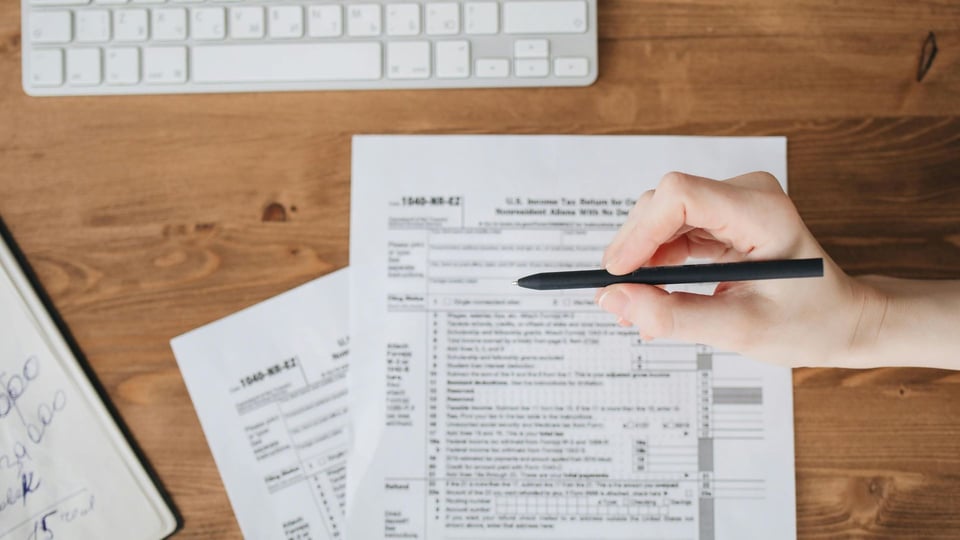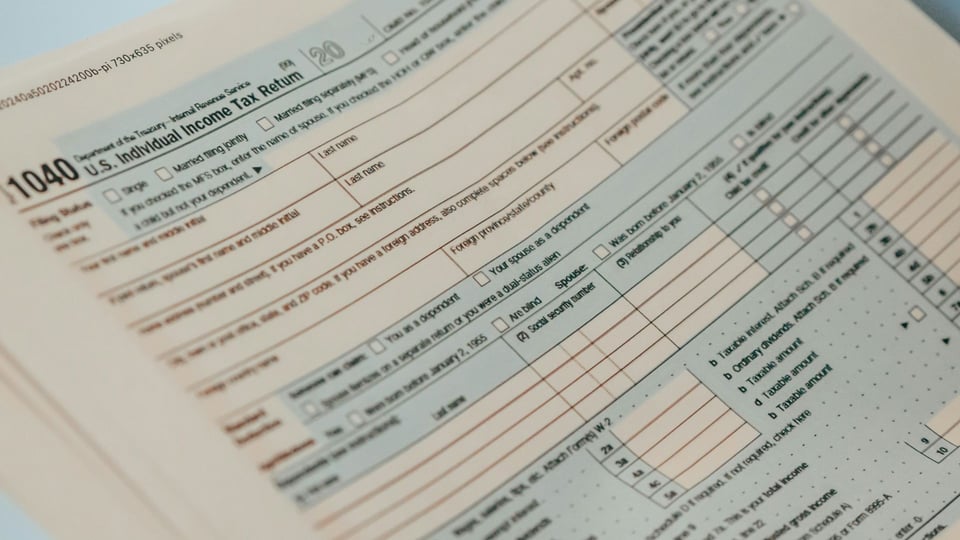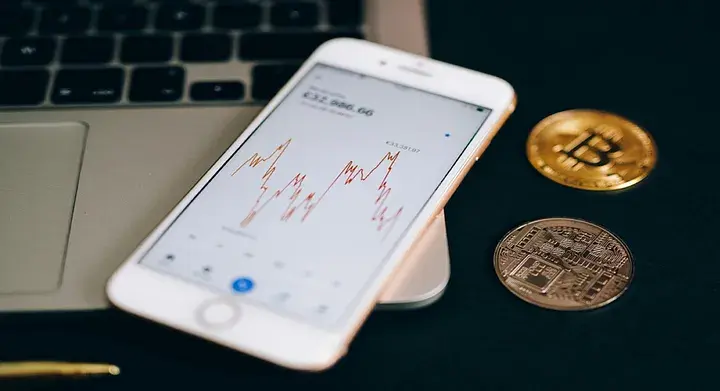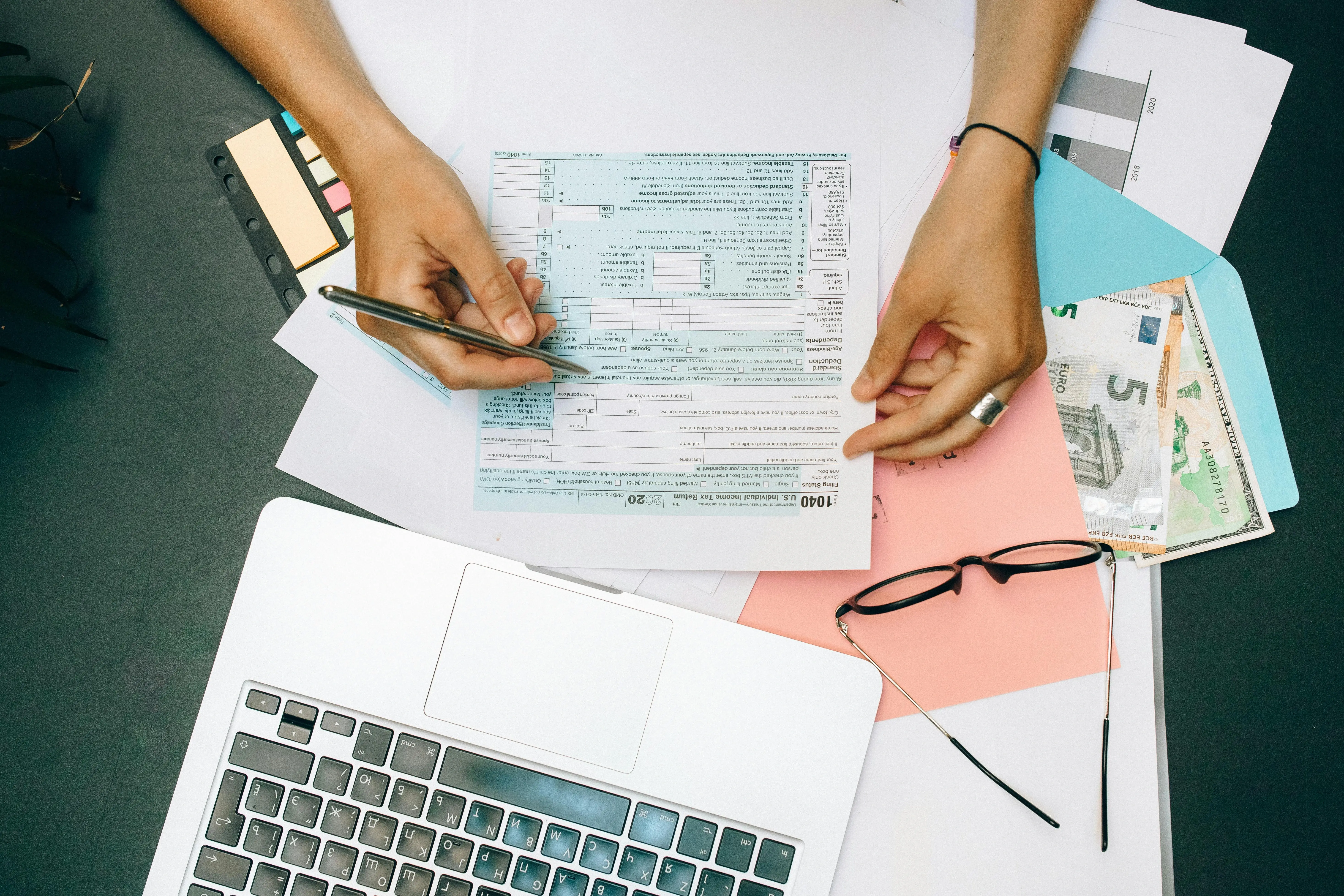Take outs:
- Platforms like crypto exchanges, NFT marketplaces, and payment apps must report users' digital asset transactions (e.g., sales, trades) to the IRS using Form 1099-DA to ensure tax compliance.
- Individual investors, merchants accepting crypto, miners, wallet providers, and certain DeFi platforms are generally exempt—unless they act as intermediaries or brokers.
- While the form simplifies crypto tax reporting and improves transparency, it raises privacy concerns, adds compliance burdens for brokers, and may lead to reporting errors or confusion for users unfamiliar with crypto tax rules.
Form 1099-DA for Digital Assets
The IRS Form 1099-DA is a new form created to assist taxpayers in reporting digital asset transactions, including cryptocurrencies (e.g., Bitcoin, Ethereum) and non-fungible tokens (NFTs). With the growing digital asset market, maintaining proper records of these transactions for tax purposes is becoming increasingly critical for both individuals and the IRS. The new form is designed to ensure tax compliance and curb underreporting in this rapidly growing market.
Who Must File Form 1099-DA?
Digital asset brokers must file Form 1099-DA. The Infrastructure Investment and Jobs Act (IIJA) of 2021 defines brokers as platforms that allow the buying, selling, or exchanging of digital assets, such as cryptocurrencies and NFTs.
Examples of Brokers Who Must File 1099-DA:
Cryptocurrency Exchanges
Example Platforms: Coinbase, Kraken, Gemini, Binance US
Why They Are Brokers: These platforms act as intermediaries for users to buy, sell, and trade cryptocurrencies like Bitcoin and Ethereum. For example, if you buy Bitcoin on Coinbase and later trade it for Ethereum, Coinbase is acting as the broker by facilitating the exchange.
NFT Marketplace
Example Platforms: OpenSea, Rarible, SuperRare
Why They Are Brokers: NFT marketplaces facilitate the buying and selling of unique digital items like art and collectibles. For example, OpenSea acts as an intermediary when you buy a digital art piece on their platform.
Payment Processors That Process Crypto Transactions
Example Providers: PayPal, Square's Cash App, Venmo
Why They Are Brokers: These payment platforms allow users to buy, sell, or use cryptocurrencies. For example, PayPal facilitates the buying and selling of Bitcoin, acting as a broker in the process.
Certain DeFi Platforms (Potentially in the Future)
Why They Could Be Considered Brokers: Although decentralized finance (DeFi) platforms typically allow direct peer-to-peer exchanges of digital assets, they may eventually be classified as brokers if they begin processing and tracking these transactions in a manner similar to traditional intermediaries.
At present, IRS Notice 2024-57 outlines certain activities like wrapping and unwrapping, liquidity provision, staking, lending, short sales, and notional principal contracts are exempted from reporting requirements. This exemption applies to both traditional brokers and DeFi platforms that do not track these transactions in the same way traditional platforms do.
DeFi platforms are not currently required to file Form 1099-DA unless they change their operations to take on the role of intermediaries that track and report transactions.

Who is Exempt from Filing Form 1099-DA?
Not every person or platform dealing with digital assets must file Form 1099-DA. The following groups are generally exempt from the reporting requirements:
Individual Users / Private Wallet Owners
- Taxpayers who simply buy, sell, or hold crypto for personal investment purposes are not required to file Form 1099-DA for their own transactions.
- Example: If you buy Bitcoin using your own Ledger or MetaMask wallet, you don't need to file Form 1099-DA. However, you still must report gains/losses on your personal tax return.
Merchants Accepting Crypto for Goods and Services
- Businesses that accept Bitcoin or other crypto as payment for goods or services are not considered "brokers" under the IRS rules.
- Example: A coffee shop that accepts Ethereum for coffee sales does not need to file Form 1099-DA.
Miners and Validators (if they are only mining / validating)
- Crypto miners and blockchain validators, if only earning block rewards or staking rewards (and not facilitating trades for others), are exempt from filing Form 1099-DA.
- However, if a mining pool or validator starts brokering transactions between users, they may become subject to reporting.
Software Providers (only offering wallet or infrastructure tools)
- Companies that only provide open-source crypto wallets, node software, or other infrastructure tools (without facilitating trades) are not required to report.
- Example: A company that just creates a software wallet (like Exodus) and doesn't facilitate buying or selling does not have to file Form 1099-DA.
Certain Decentralized Finance (DeFi) Platforms
- Pure DeFi protocols that allow users to interact directly with smart contracts without acting as intermediaries are generally not considered brokers — at least for now.
- Example: If you swap tokens directly through a DeFi platform like Uniswap (without the platform collecting your personal information or facilitating the transaction actively), Uniswap itself likely isn't filing Form 1099-DA.
- Important: This could change in the future if regulations broaden the definition of "broker."
What Does Form 1099-DA Report?
Form 1099-DA is used to report transactions involving digital assets. When brokers submit this form, they provide essential information that allows both the taxpayer and the IRS to track digital asset sales, swaps, and exchanges for tax purposes.
Important Information Reported on Form 1099-DA:
Digital Asset Information
The name and type of the digital asset involved (e.g., Bitcoin, Ethereum, or an NFT).
Example: You sold 2 Bitcoin on Coinbase—Form 1099-DA will report that the assets were Bitcoin.
Transaction Details
The acquisition and sale dates, the number of units, and the proceeds from the transaction.
Example: If you bought 1 Bitcoin for $20,000 and sold it for $30,000, the form will report the sale date, the number of Bitcoin sold (1), and the $30,000 proceeds.
Cost Basis
The initial value of the digital asset when purchased (if known).
Example: If you purchased 1 Bitcoin at $20,000, the cost basis will be shown as $20,000.
Gain or Loss
The profit or loss from the transaction, calculated by subtracting the cost basis from the sale proceeds.
Example: If you sold the 1 Bitcoin for $30,000, your gain would be $10,000 ($30,000 - $20,000).
Other Information
Details on wash sales, market discounts, and whether the asset is a covered or non-covered security.
When Do Brokers Begin Reporting Form 1099-DA?
Starting in 2025, brokers must report digital asset sales to the IRS using the new Form 1099-DA. This reporting applies to transactions that occur in 2025, with forms issued to taxpayers in early 2026. Although the Infrastructure Investment and Jobs Act (IIJA) of November 2021 introduced this reporting mandate, the IRS extended the implementation timeline to give brokers adequate time to comply.
Key Points for 2025:
- It is mandatory for brokers to report the gross proceeds (the total amount received from a sale) on Form 1099-DA.
- Reporting of cost basis (the original purchase amount) is voluntary for 2025. Brokers that choose to report basis will receive penalty relief if errors occur.

Looking Ahead — 2026 and Beyond:
- Brokers will be mandated to report both gross proceeds and basis information for covered securities—meaning digital assets acquired on or after January 1, 2026, in accounts where brokers provide custodial services.
- For assets acquired before 2026 (nonconventional securities), reporting basis remains voluntary.
Important Dates:
- January 2026: Brokers must furnish Form 1099-DA to taxpayers for 2025 transactions.
- Early 2026: Brokers must file 1099-DA forms with the IRS for 2025 transactions.
Significance of Form 1099-DA:
Form 1099-DA is crucial for maintaining tax compliance in the growing digital asset market. It provides several key benefits:
Ensures Tax Compliance
Tracks Digital Asset Transactions
Promotes Transparency
Facilitates IRS Enforcement

Advantages for Taxpayers:
Form 1099-DA provides several advantages for taxpayers, making the tax filing process easier:
Simplifies Tax Reporting
With Form 1099-DA, taxpayers no longer need to manually track each digital asset transaction.
For example, if you trade and sell crypto on Coinbase, the platform will report your gains or losses, simplifying your tax return.
Enhances Transparency
The form offers a detailed record of every transaction, ensuring accurate information for tax filing.
For example, if you exchange Ethereum for an NFT on OpenSea, the form will document the exchange.
Reduces Tax Evasion
Facilitates Record Keeping
Disadvantages of Form 1099-DA:
Privacy Concerns
- Reporting digital asset transactions to the IRS raises significant privacy issues for crypto users, especially those who value decentralization and anonymity.
- For example, even a simple swap from Bitcoin to Ethereum will now trigger reporting of your identity and transaction details to the government.
Administrative Burden
- Brokers may face significant administrative challenges in collecting, verifying, and reporting accurate transaction details, especially in complex transactions like staking or decentralized exchanges.
Potential Inaccuracies in Cost Basis Reporting
- When digital assets are transferred between wallets or platforms, if one broker fails to issue a Form 1099-DA or share the necessary transaction history, the cost basis may be incorrectly reported.
- For example, suppose you bought 1 Bitcoin for $20,000 on Exchange A and later transferred it to Exchange B. If Exchange A doesn’t share the original purchase details, Exchange B might report the sale at $25,000 without factoring in your $20,000 cost basis. This could make it appear as though you gained $25,000—rather than the actual $5,000—potentially resulting in incorrect tax liability.
Increased Tax Scrutiny
- The IRS will have more information to cross-check against your tax filings, which means higher chances of audits or inquiries if your return doesn’t match reported transactions.
- For example, if your Form 1099-DA reports $100,000 in crypto sales but you only report $50,000 in income, it could raise a red flag with the IRS.
Reporting Errors by Brokers
- Brokers might incorrectly report transaction amounts, cost basis, or holding periods, leading to tax calculation errors for taxpayers.
- For example, if a broker reports the proceeds from your Bitcoin sale but omits or miscalculates your original purchase price, you could be taxed incorrectly—unless you catch and correct the error.
Incomplete Information in Early Years
- Until full implementation in 2025, brokers are only required to report gross proceeds, not cost basis or holding periods — leaving taxpayers to do extra work to correctly report gains or losses.
- For example, you might receive a Form 1099-DA showing you sold crypto for $50,000 but have no official record of whether you made a profit or loss without doing your own calculations.
Confusion for Taxpayers
- Many crypto investors are unaware of tax rules or how to use the Form 1099-DA information correctly, leading to errors, missed deductions, or overpayment of taxes.
- For example, some people assume that all crypto received is immediately taxable income, but depending on the type of transaction, that’s not always the case.
Added Compliance Burden for Brokers
- Crypto exchanges and platforms now must collect more customer information (KYC — Know Your Customer) and track transaction data more closely, raising compliance costs, which may eventually be passed on to users through higher fees.
- For example, a DeFi platform may increase its fees to offset the new costs associated with regulatory compliance.
Potential Chilling Effect on Innovation
- Stringent reporting requirements might discourage new startups from building crypto-based apps and services, slowing down innovation in blockchain technology.
- For example, developers may hold off on launching new crypto exchanges or DeFi services to avoid regulatory headaches.

Taxpayer Tips for Form 1099-DA:
Correct Old Tax Returns
Maintain Organized Records
Review Form 1099-DA Carefully
Report All Sales of Digital Assets
Compute Cost Basis and Holding Period
Stay Updated on Tax Law Amendments
In summary, Form 1099-DA plays an important role in enhancing transparency and compliance within the digital asset market. By requiring brokers to report specific transaction details, the form helps taxpayers accurately report their gains or losses from cryptocurrency and NFT transactions. As the IRS continues to tighten regulations around digital currencies, it’s vital for taxpayers to familiarize themselves with Form 1099-DA to stay compliant and avoid penalties. Being proactive in reporting and tracking digital asset transactions will make the tax process more straightforward and help clarify the complexities of the rapidly evolving digital finance landscape.
DISCLAIMER: The information in this article was sourced from: irs.gov/pub/irs-pdf/f1099da.pdf. The information provided in this article is intended solely for informational purposes. It is prepared to keep you updated with the latest changes and proposals related to cryptocurrency tax laws issued by the IRS. While we strive to offer accurate and timely information, please note that the article does not constitute legal or financial advice. For any questions about upcoming tax law changes, please contact our team at Kelly+Partners.
Share this
You May Also Like
These Related Stories

New Guidance on Digital Asset Basis Allocation for 2025

How Simple Protocols Are Making Crypto Accessible for Everyone

/Brand/Logos/Kelly%20Partners%20Accountants%20Logo/Kelly-Partners-Accountants-Horizontal-Logo.webp?width=1500&height=212&name=Kelly-Partners-Accountants-Horizontal-Logo.webp)